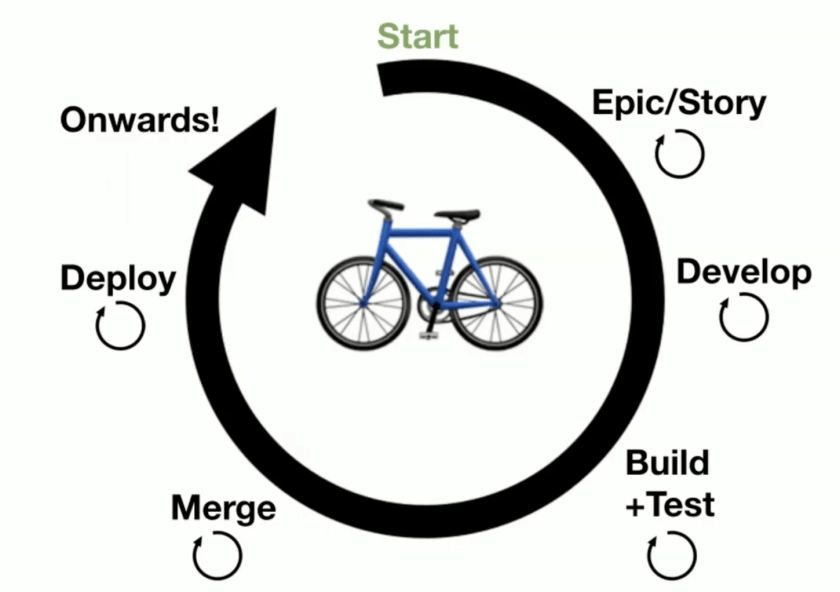Balancing Fast-Paced Innovation and Technical Debt
Allan Leinwand
Winning strategies
- Fix customer issues fast
- Make sure they don’t happen again
- Build innovative product
Cycle time
- This is a valuable key metric for eng leaders
- Goal = drive down cycle time
- Better outcomes, happier engineers (and other stakeholders

•••••••••••••••••••••••••••••••••••••••••••••
Debugging Your Career: How to Increase Your Ability to Win as a Manager
Wade Chambers
New manager metrics

- 50-70% of new managers/execs fail
- 50% suffer silently
- Peter Principle a major factor – “People in a hierarchy tend to rise to the level of their incompetence”. In other words, we get promoted right up until we are no longer competent (current role skills don’t map to next-level role skills).

Neuroplasticity
- We can control which areas get stronger
- “Fire together, wire together” – we can train certain neurons to fire in conjunction
- Requires focused/deliberate practice
- Book rec: Liminal Thinking (David Gray)
- Growth requires seeking input outside existing beliefs/patterns
- Mentors FTW!
Reactive vs proactive focus

- If you start to think the problem is out there, STOP
- Focus on what we can control, personal growth + influence
- Simple in theory, hard in practice
Competencies
- What competencies are limiting me from moving forward?
- Factors/considerations that relate to competencies:
- Output
- Level of responsibility before output suffers
- Business impact
- Types
- Cognitive – how good are you at solving the right problem in the highest expected value way?
- Processes: create, evaluate, apply
- Mastery: mastered, competent
- Domains: company, role, profession
- Personal – how good are you at self mastery?
- Awareness: emotional awareness, accurate self-assessment, self-confidence
- Self-management: emotional self-control, transparency, adaptability
- Social – what you sense about others and how well you use that awareness?
- Social awareness: empathy, org awareness, service
- Relationship management: inspirational leadership, influence, developing others, conflict management
- Good question to ask: what competency is most limiting you?
- Cognitive – how good are you at solving the right problem in the highest expected value way?

Conscious growth
- Great manager
- observe/evaluate against career ladder + personal objectives
- provide feedback/coaching
- identify blind spots
- deliver 360 feedback
- assign tours-of-duty for growth
- Clear goals
- Seek opps/roles that entail desired competencies
- Growth depends on:
- what you practice
- how you practice
- who you practice with

•••••••••••••••••••••••••••••••••••••••••••••
Building Your Career Like A Pyramid
Quentin
Being intentional
- What am I trying to learn?
- Am I growing?
- Am I engaged emotionally/intellectually/spiritually (cathedral vs. brick-laying)?
- Who can I learn from?
- Do I want change?

6 Buckets
- Vision
- Strategy
- Leadership
- Management
- Technical acuity
- Business acuity
At any given time, which bucket are you filling?
- Where are you now?
- What is your potential to learn?
- Can you grow the bucket?
- What experiences let you add water?
- What bucket should you focus on?
- Focus on 1-2 buckets intentionally
Self + team assessment

Learn more about this stuff. . .
- ✅ Gemba walk (productivity tool)
- Gemba (Japanese): the real place (aka where the work happens)
- A management tool that entails visits the “place” where work is being done, with a clear intention of clarifying the value stream (see below)
- Tools: value stream mapping, 5 whys
- Self/team assessment from “Self + team assessment” section
- Value stream mapping (to explore)
- Books in #elc-summit-2020
